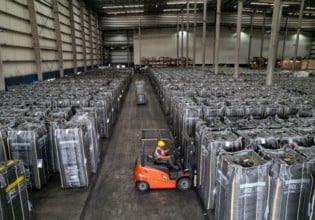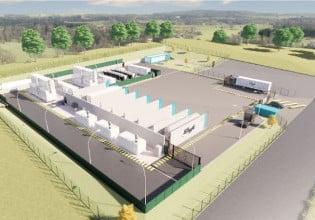NEMA, the National Electrical Manufacturers Association, today voiced opposition to a California State Department of Toxic Substances Control (DTSC) ruling that California consumers can no longer legally dispose of primary batteries—those standard size alkaline batteries (AAA, AA, C, and D) used most often—in their household trash. The DTSC has defined these batteries as "universal waste" (a category of hazardous waste that is generally considered to be "less hazardous") in California. California consumers and small businesses are alone in facing this problem. Nowhere else in the country are primary batteries considered to be "hazardous" or "universal" wastes.
According to NEMA, California consumers face several problems with this action. There is no infrastructure in the state for special collection of most consumer batteries, so consumers are basically left with no means of complying with this new requirement.
Primary consumer batteries are not "laden with toxic materials," as DTSC sources have claimed in announcing this ban. DTSC's classification of batteries as "universal wastes" rests on their view that the batteries are "corrosive" wastes because of the battery's electrolyte.
NEMA states that this classification: (1) contradicts U.S. federal environmental test protocols where these batteries do not test as corrosive or hazardous waste; (2) is based on a suspect, flawed, one-of-a-kind test protocol authorized by California DTSC; and (3) ignores relevant study data that these products are environmentally benign—not one credible study has found the opposite.
NEMA sees no environmental threat posed by disposing of primary consumer batteries in household trash, where they ultimately end up in licensed, engineered landfills. Batteries are neither toxic nor represent a significant bulk issue—two criteria normally used to restrict materials from landfills. Batteries represent only .005 percent of the wastes destined for landfills. Numerous academic studies have demonstrated that batteries in landfills are not environmentally harmful.
Finally, NEMA claims that the DTSC action will place a burden on consumers and small businesses without any real environmental benefit. Consumers in California now face penalties of up to $25,000 per day for throwing a battery in the trash.
"The ban promises no benefit to public health and safety, but will impose real costs not just on California consumers, but also on state environmental authorities that must assume the administrative burden of implementing the regulations," says Kyle Pitsor, NEMA vice president of government relations. "The industry urges California lawmakers to request that DTSC reconsider its decision."






